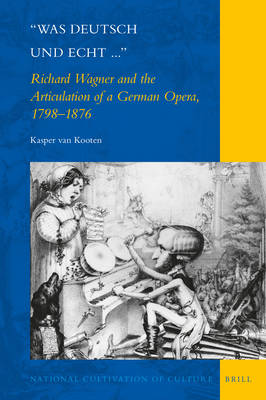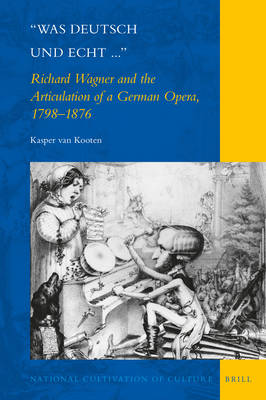
- Afhalen na 1 uur in een winkel met voorraad
- Gratis thuislevering in België vanaf € 30
- Ruim aanbod met 7 miljoen producten
- Afhalen na 1 uur in een winkel met voorraad
- Gratis thuislevering in België vanaf € 30
- Ruim aanbod met 7 miljoen producten
Zoeken
Was Deutsch Und Echt...
Richard Wagner and the Articulation of a German Opera, 1798-1876
Kasper Bastiaan Van Kooten
€ 134,63
+ 269 punten
Omschrijving
By examining theoretical debates about the nature of nineteenth-century German opera and analyzing the genre's development and its international dissemination, this book shows German opera's entanglement with national identity formation. The thorough study of German opera debates in the first half of the nineteenth century highlights the esthetic and ideological significance of this relatively neglected repertoire, and helps to contextualize Richard Wagner's attempts to define German opera and to gain a reputation as the German opera composer par excellence. By interpreting Wagner's esthetic endeavors as a continuation of previous campaigns for the emancipation of German opera, this book adds an original and significant perspective to discussions about Wagner's relation to German nationalism.
Specificaties
Betrokkenen
- Auteur(s):
- Uitgeverij:
Inhoud
- Aantal bladzijden:
- 320
- Taal:
- Engels
- Reeks:
- Reeksnummer:
- nr. 17
Eigenschappen
- Productcode (EAN):
- 9789004206816
- Verschijningsdatum:
- 14/03/2019
- Uitvoering:
- Hardcover
- Formaat:
- Genaaid
- Afmetingen:
- 155 mm x 235 mm
- Gewicht:
- 633 g

Alleen bij Standaard Boekhandel
+ 269 punten op je klantenkaart van Standaard Boekhandel
Beoordelingen
We publiceren alleen reviews die voldoen aan de voorwaarden voor reviews. Bekijk onze voorwaarden voor reviews.











